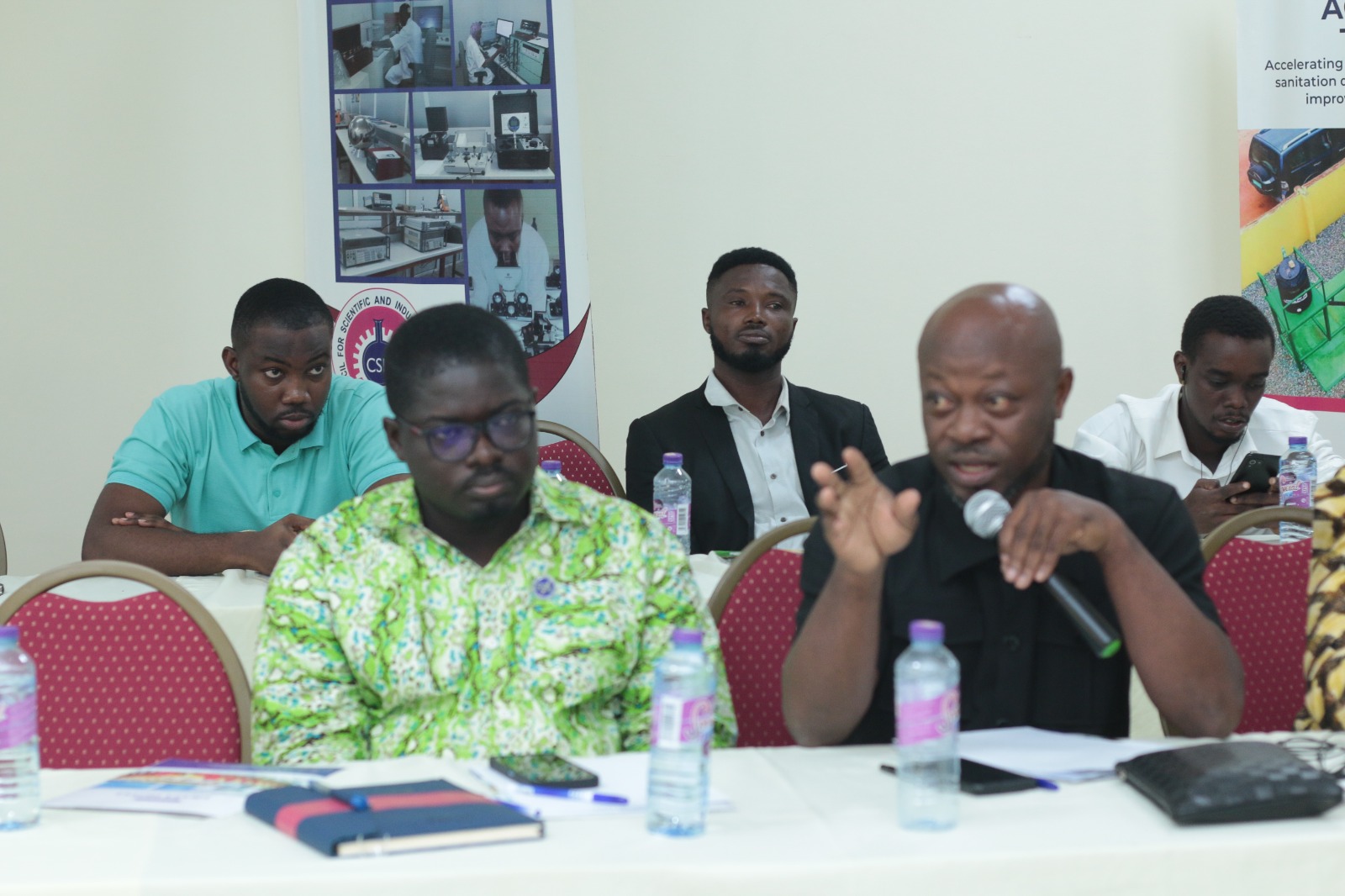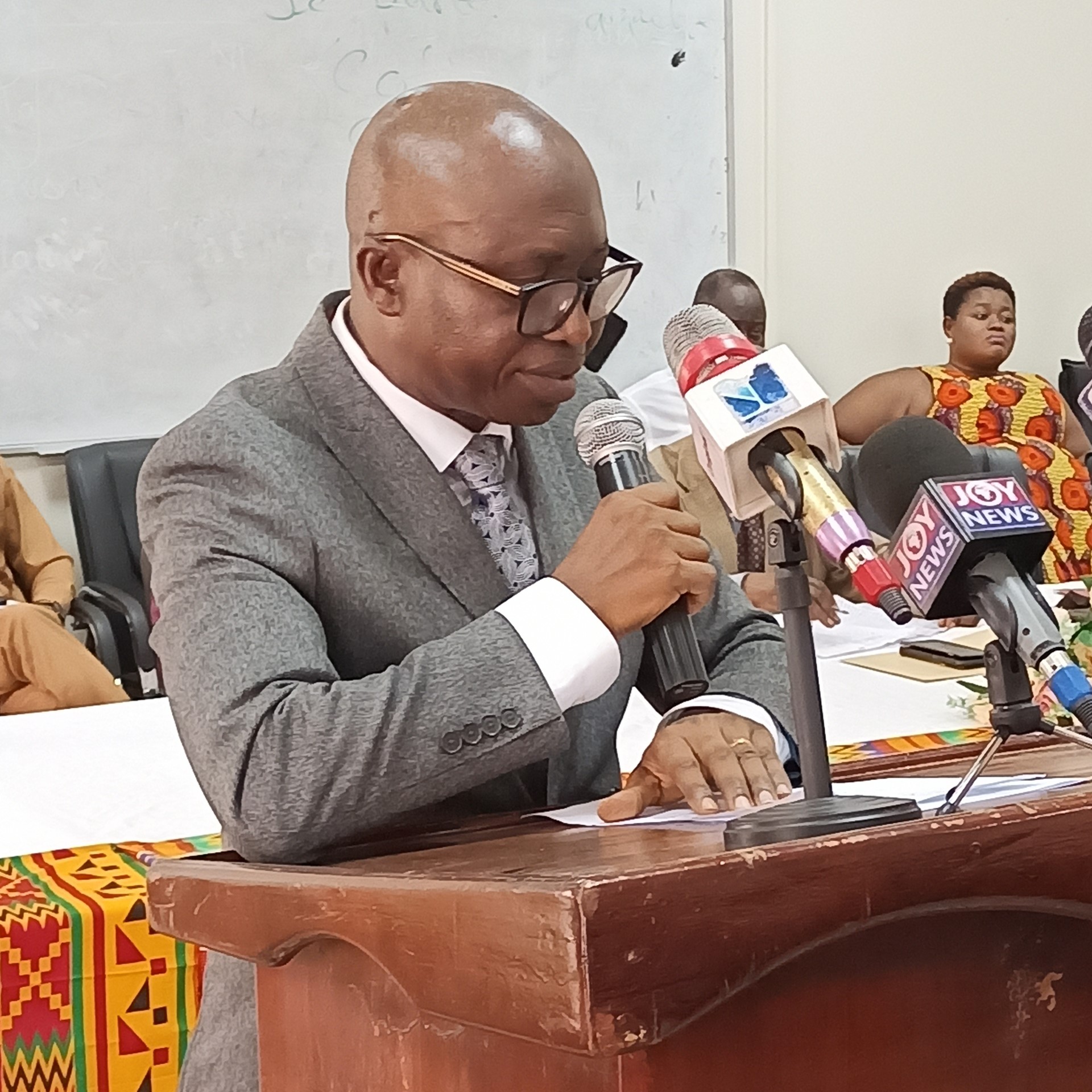
The Council for Scientific and Industrial Research (CSIR) on Thursday, November 3, 2022, launched its first Intellectual Property (IP) Policy Document, with the Minister for Environment, Science, Technology and Innovation (MESTI), Dr Kwaku Afriyie in attendance. The event brought other key stakeholders in the IP sector, including the World Intellectual Property Organisation (WIPO) and the Ghana Intellectual Property Organisation (GhIPO).
The minister, who launched the IP policy document expressed the hope that it will spur innovation at the CSIR as well as protect the rights of CSIR researchers, innovators and inventors.
“It is my greatest expectation that the IP policy will protect the rights of the CSIR, its innovators, inventors, research sponsors and the public, while optimising the environment and incentives for research and for the creation of new IPs,” Dr Afriyie said, commending the developers and contributors of the document, particularly WIPO and the GhIPO, for their work.
For a very long time, the subject of IP has not received much attention from the media and organisations. This is probably due to the fact that many people really do not understand its essence or application to their work or professions.
However, IP remains a major topic in the creative world due to the social recognition and financial rewards it offers.
WHAT IS IP?
Intellectual property simply refers to creations of the human mind, such as inventions; literary and artistic works; designs; and symbols, names and images used in commerce. It is a branch of law that grants protection to individuals and organisations who use their mental ability and human ingenuity to create products for the benefit of society.
What it means is that the IP system strikes the right balance between the interests of innovators and the wider public interest, thus the IP system aims to foster an environment in which creativity and innovation can flourish. In this case, people who invent something earn financial rewards for that. This is because IP grants inventors and innovators exclusive rights to their creations usually for a stipulated period.
Due to the importance of IP, April 26 each year, has been designated as the World Intellectual Property Day, a day which is celebrated to promote discussion of the role of IP in encouraging innovation and creativity in the world.
WIPO
Established in 1967, WIPO is the global forum for intellectual property services, policy, information and cooperation. It is an agency of the United Nations with 193 member states.
It has a mission to lead the development of a balanced and effective international IP system that enables innovation and creativity for the benefit of all.
There are two main branches of IP— Industrial Property and Copyright & Related Rights. Under the Industrial Property, it encompasses all forms of IP which have industrial connotation, including Patents, Trademarks; Industrial Designs; and Geographical Indications.
Unlike Industrial Property, Copyright and related rights deals with the rights that creators have over their literary and artistic works. It covers works such as books, music, paintings, sculpture and films, to computer programmes, databases, advertisements, maps and technical drawings.
Back home in Ghana, the Ghana Copyright Office was established in 1985 under the Ministry of Justice to help protect the rights of Ghanaian creatives and inventors.
Among the functions of the Copyright Office as set out in Section 66 of the Copyright Act, 2005 (Act 690) are to: implement copyright and related laws, regulate and provide for copyright administration, investigate and redress cases of infringement of copyright, be responsible for the administration of external copyright relations; as well as to administer copyrights of which the state is the owner.
The government of Ghana in May 2012 developed the country’s first National Intellectual Property Policy and Strategy (NIPPS) document to strengthen the management of the IP system in Ghana to encourage innovation and creativity within the system.
The NIPPS is driven by the country’s trade policy prescription, which aims to bring Ghana’s IP regime in line with its international commitment under the World Trade Organisation on the Trade Related Aspects of intellectual property rights.
The then Minister of Trade and Industry, Ms Hannah Tetteh, during the launch of the policy document said government had put in place strong systems for the promotion of IP rights, saying “Ghana recognises that innovation, the creation and acquisition of IP rights are central to economic growth, that is why Ghana is committed to the realisation of the Swiss-Ghana IP.”
Similarly, Ghana’s Edward Kwakwa, who has been appointed Assistant Director General at the World Intellectual Property Organisation, in an interview with Ghana News Agency (GNA) on November 4, 2021, asked developing countries to pay more interest to securing the creative rights of their citizens.
This is because, for him, protecting their intellectual property would lead to the creation of jobs and boost socio-economic growth, saying “Innovation and creativity are not the sole preserve of Western or advanced economies but should also be to the benefit of all countries, including developing and least-developed countries.”
He added, “IP is a driver of enterprise growth; it is a tool for job creation, a means to enhance social vibrancy, and a tool to unleash the power of creativity and ingenuity”, urging that “we must strive to change the narrative of Intellectual Property being seen as an esoteric topic of interest only to lawyers and engineers.”
Why the CSIR IP Document?
Considering the importance of IP to innovators and inventors, the CSIR IP Handbook among others has been launched to provide easy reading and understanding of IP. The book has particularly been developed to offer useful information on IP to research scientists and students pursuing courses in IP.
This is why Dr Afriyie who unveiled the IP document during the launch said it was very important for the CSIR to take advantage of the expertise and enabling environment it was endowed with to improve upon its activities technologically, for the mobilisation of more resources.
For him, it was about time the CSIR took advantage of science and technology to improve its fortunes, saying “Currently, the pointers are clear and this is our time to take the bull by the horn and lead the way to prosperity using the frontiers and transforming power of science and technology.”
The MESTI Minister believes that the newly developed IP document would spur researchers and technologists on, to be more innovative and come out with creative technologies and marketable products for the benefit of both the inventor and the CSIR.
Dr Afriyie’s conviction is based on the fact that now scientists and innovators would have their rights protected which would ultimately earn them financial rewards and social recognition, both in Ghana and abroad.
Also speaking at the launch, a Chief State Attorney at the Registrar General’s Department of Ministry of Justice, Accra, Grace Ama Issahaque, noted that the launch of CSIR’s IP policy was the first step CSIR was taking to incorporate IP into its business model. For her, it was necessary for the CSIR to ensure that enough finances and human resource was made available as soon as possible for the implementation of the policy.
She pledged the support of the Ghana Industrial Property Office to collaborate with its stakeholders such as the CSIR to develop their intellectual property management systems.
The Chairman of the Governing Council, CSIR, Professor Robert Kingsford Adaboh, noted that the dissemination of technical information was another important aspect of IP rights, pointing out that the CSIR IP document had come to fulfil that vacuum.
He was of the view that 80 per cent of current technological knowledge and information could be found in patent documents, explaining that IP protection was basic for innovations to thrive as it rewarded creativity and could generate tangible benefits to businesses, employees and the society at large.
By Benedicta Gyimaah Folley
The post CSIR’s Intellectual Property document to bolster research, innovation and inventions appeared first on Ghanaian Times.
Read Full Story














Facebook
Twitter
Pinterest
Instagram
Google+
YouTube
LinkedIn
RSS